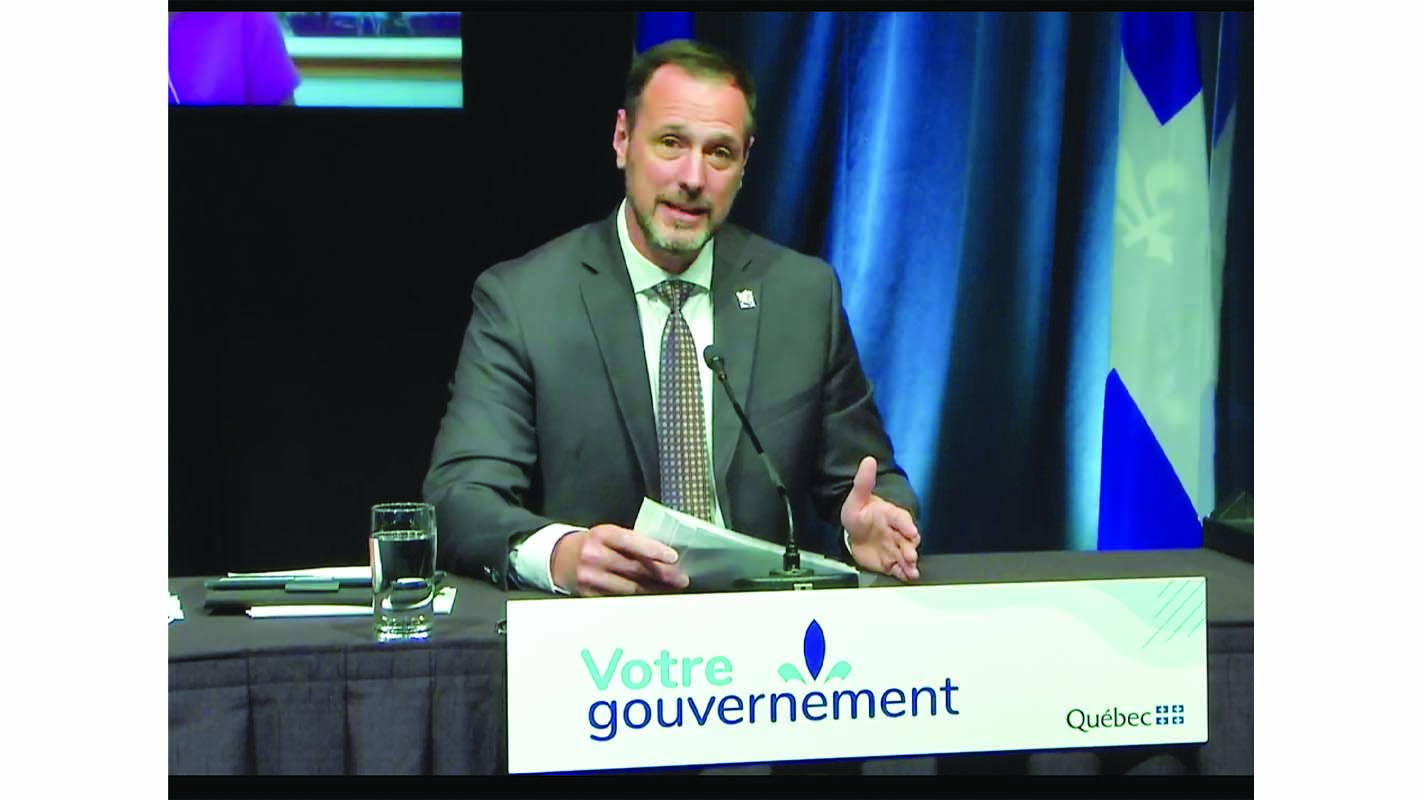By Gordon Lambie
Local Journalism Initiative
Education Minister Jean-Francois Roberge and Minister for Education Isabelle Charest presented the details of Quebec’s back-to-school plan on Wednesday morning, offering a preview of what students, school staff, and parents can expect this coming fall. Despite mounting concern over the likelihood of a fourth wave of the pandemic driven by the Delta variant in unvaccinated populations (such as all children under 12), the plan presented involves significantly fewer restrictions than students experienced over the 2020-21 school year.
To begin with, Roberge said that masks are to be worn by students on busses and in common areas like hallways, but not in class, outside, or in daycare. Teachers will also be allowed to take off masks while at an appropriate distance from students in class.
The education minister said that the idea of class bubbles, which limited at-school interaction between students to their class group last year, has been eliminated.
“Our children want to see their friends,” Roberge said, noting that although mixing groups increases the risk of contagion, the bubbles proved to be a significant social obstacle for children in the province last year. “No one here denies that there are risks from Covid,” he said, “but we want to allow a more normal life in school.”
With class groups able to mix once again, option classes and extracurricular activities will be able to return, although Charest said that ‘higher risk’ activities will be subject to the vaccine passport system at the high school level. The minister stopped short of clarifying which activities would qualify as risky at this point in time, although her announcements in the past have typically been related to school sports.
On the subject of air quality in schools, Roberge said that the province will be installing active carbon dioxide monitoring systems in the province’s classrooms to allow teachers real-time data about whether or not to ventilate their spaces.
The education minister also announced what he called a ‘scholastic safety net’ made up of $13 million in funding for partnerships with community organizations aimed at helping to keep students in school and supported. Part of this funding, he said, will also go toward ensuring that all school boards and service centres have a liaison agent to stay in touch with students who drop out and offer them support or assistance.
“We don’t want to leave anyone behind,” Roberge said.
The minister mentioned at several points that any one of the elements of this plan is subject to revision if the situation in the province gets worse.
“Our priority is the security of the students and Teachers and school staff,” he said, explaining that Quebec’s institute of public health, the INSPQ, is currently in the process of revising its policies with regard to the handling of outbreaks and cases in the school environment.
Despite a claim from Roberge that this plan had been made after months of consultation with people in all parts of the education system, including the chairpeople of English school boards, Michael Murray, Chairman of the Eastern Townships School Board, said that he never heard a word from the Minister.
Murray described the board’s interaction with the ministry as “businesslike and satisfying,” but added, “I hope he consulted others better than he consulted the English boards.”
The ETSB chair declined to comment on the details of Wednesday’s announcement, having not yet heard them at the time of The Record’s call, but he did share that the board has already begun to install day-long air quality sensors in the majority of its classrooms.
“We thought it was necessary and important,” he said adding that when the board waits for an issue to be resolved on a provincial level, the result is often a bottleneck in demand that then results in delays. “We were able to source them at a time before that happened.”
Murray said that the board has also arranged to have air purifiers available in the classrooms where last year’s air quality studies showed circulation to be less efficient.
Quebec’s association of parents’ committees, meanwhile, released a statement arguing that the extension of the vaccine passport to the school system creates two classes of students by depriving students who have not been vaccinated of access to activities they consider to be an important part of the school experience.
The province of Quebec reported 365 new cases of COVID-19 on Wednesday, bringing the total number of people infected to 380,038, with 2,126 active cases.
There was one new death reported, for a total of 11,242 since the start of the pandemic, and the number of people in hospital increased by five, to 67. The number of people in intensive care also increased, to reach 22.
In the Eastern Townships the number of active cases jumped again, reaching 80. Much of that increase is focused in the Haute Yamaska and Sherbrooke areas which, together, account for 64 of the 80 cases. The number of hospitalizations in the region remained unchanged, at four, and there were no new deaths.
Across the province, 84.9 per cent of the population eligible to be vaccinated has received at least one dose, and 72.6 per cent are now considered adequately vaccinated.
For full story and others, subscribe now.






